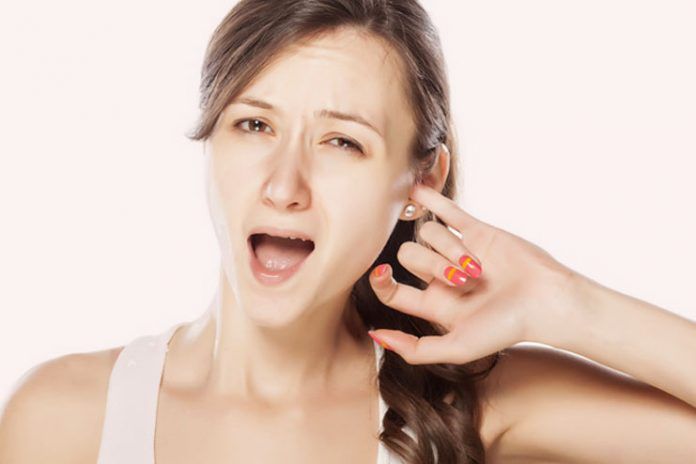Affiliate Disclaimer
Some links in this article are affiliate links. We may earn a small commission if you make a purchase through these links, at no extra cost to you. We only recommend products we find useful to our readersThe condition of the itchy ear is one of the common conditions and can be caused due to a lot of reasons, according to various experts. The condition may occur due to a sensitivity of your ears as they contain highly sensitive neurological fibers. It is also possible that sometimes the problem of the itchy ear may indicate any type of underlying issue. The condition of the itchy ear is one of the common conditions and can be caused due to a lot of reasons, according to various experts.
Here, we have tried to provide you full information about the condition of an itchy ear. Read on to get all the details about the important remedies, which you can try to get rid of the problem of an itchy ear.
Major Itchy Ear Causes
As mentioned earlier, there are a lot of things which can cause the problem of an itchy ear. Some of the major causes of the problem are listed below.
● Ear canal dermatitis
The inflammation, which can occur around the skin of the ear canal is the main cause behind the ear canal dermatitis. This may take place due to allergic conditions due to metal earrings or the personal hygiene products. Another problem which can also cause due to unknown causes is Aural Eczematoid dermatitis.
● Dry Skin
The ear skin can become dry as well as itchy if your ears stop to produce enough wax in your ear. Wax in the ear is important as it also provides the lubricating effect and if it is not present, you can face the problem of itching in your ear as well as flaking of the skin from your ear.
● Psoriasis
In psoriasis, various types of red rash starts to appear on your body. Along with your arms and legs, the condition of psoriasis is also common inside the ear.
● Use of hearing aid
Using hearing aid cause the allergic reaction due to it or through trapping of water inside the ear. Certain hearing aid can also pressurize some areas in your ear, which can lead to itching.
● Infection in outer ear or Otitis Externa
The condition of otitis externa occurs when the infection takes place on the outer ear canal and causes itching as well as pain I the ear. The condition, which is also known as swimmer’s ear, is caused due to inflammation, which occurs due to infection. This can trigger swelling as well as redness.
Sometimes, the problem of itchy ears may also cause due to the breakdown of ear skin. Some of the common causes of this problem are,
● Large amount of water in ear
● Debris as well as foreign particles in the ear
● Earwax lubrication
Symptoms of Itchy Ear
There are various itchy ear symptoms. The most common is that the itchy ear can feel highly irritating as well as bothersome. Although you might feel scratching will prove helpful, on the contrary, scratching causes even more trouble. The problem of itchy ears can also cause other conditions as well. There are listed below.
- Ear drainage
- Fever
- Swelling
How to Get Rid of Itchy Ears
Treatment of itchy ears
While following treatment of the itchy ears, first of all, it is important to stay away from any potential substances which may cause the problem of allergic reactions. Due to allergic reactions, irritation may take place. Some of the examples of these products include, earrings as well as your personal care products.
Another important thing you need to keep in mind is that to take suggestions from your physician before putting ear drops or ointments in your ear. This might help in not putting anything in the ear, which can cause irritation. Also, it is important not to use any type of ointments or drops unless it prescribed by your doctor if you are facing the problem of eardrum damage.
To treat the condition of itchy ears, your doctor can prescribe the following treatments.
- For softening the skin, baby oil
- Diluted solution of hydrogen peroxide, acetic acid as well as rubbing alcohol
- Antibiotic ointment
- Effective ointment, which may help in relieving inflammation.
Antibiotics may also be prescribed when the problem of itching ears is accompanied with discharge or pain in the ear as well as high temperature. It is recommended by the experts that you need to go to your doctor to clean your ear periodically. This may help in reducing the trauma, which can cause due to removing a large amount of earwax from your ear.
Along with this, you can try various home remedies to treat the problem of an itchy ear. Some of the amazing home remedies for itchy ear are listed below.
Itchy ear home remedies
● Vinegar
Distilled white vinegar can be an amazing option for treating the condition of an itchy ear. You can even combine it with rubbing alcohol. The mixture is quite helpful not only in cleaning the ear but also in providing relief to the symptoms of it.
All you need to do make the mixture of vinegar and rubbing alcohol is to combine both in the equal quantities and then pour it into the syringe or a dropped to apply on your ear.
Alternatively, if you don’t have to rub alcohol, you can try apple cider vinegar. Diluted apple cider vinegar contains important antiseptic properties. Apple cider vinegar also helpful in promoting inner as well as the outer health of your ear.
● Aloe vera
Aloe vera can also be an effective option over treating the problem of an itchy ear. According to the experts, aloe vera drops helps in maintaining the pH balance of the skin of the ear and also helpful in providing calm and soothe to the inflammation as well as swelling due to infection in the ear.
Just take out the natural gel from the fresh aloe vera leaf and then pour it into a syringe to apply it on the ear. You can also use this remedy on younger people as they are the one which are more prone to the problem of an itchy ear.
However, if you find any other symptom after using aloe vera, it is important to consult with your doctor immediately. To avoid any side effects, you can first try the aloe vera gel in small quantities on your skin and check the area for 24 hours. If no redness or swelling occurs, you can go ahead with it.
(Cover Image Source: David Wolfe)




























